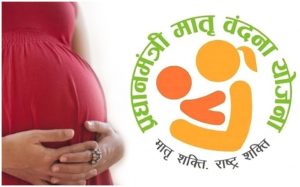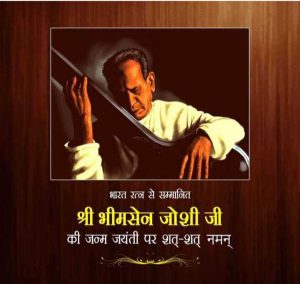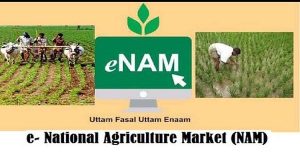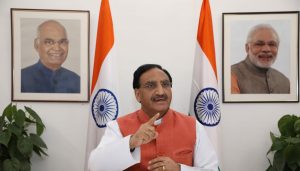Today Current Affairs: 5th February 2021 for UPSC IAS exams, State PSC exams, SSC CGL, State SSC, RRB, Railways, Banking Exam & IBPS, etc
Table of Contents
World Cancer Day:

India Post, Mumbai Region, in collaboration with the Tata Memorial Centre, Mumbai releases a Special Cover on World Cancer Day (February 4).
- Objective: To save millions of preventable deaths each year through raising awareness and by pressing governments to take action against Cancer.
- Organized by: Union for International Cancer Control (UICC), an international non-governmental organization (NGO) that exists to help the global health community accelerate the fight against cancer.
- It was founded in 1933 and based in Geneva, Switzerland.
- World Cancer Day was established by the Paris Charter adopted at the World Summit Against Cancer for the New Millenium in Paris in 2000.
- Theme: In 2019, Union for International Cancer Control, launched a new 3-year campaign with the theme: “I Am and I Will.”
- The campaign is an empowering call-to-action urging for personal commitment and represents the power of individual action taken now to impact the future.
Pradhan Mantri Matru Vandana Yojana:

The scheme has crossed 1.75 crores, eligible women, till the financial year 2020.
It is a Maternity Benefit Programme that is implemented in all the districts of the country in accordance with the provision of the National Food Security Act, 2013. Under PMMVY, pregnant women and lactating mothers (PW&LM) receive ₹5,000 on the birth of their first child in three installments, after fulfilling certain conditionalities.
- It excludes those PW&LM who are in regular employment with the Central Government or the State Governments or PSUs or those who are in receipt of similar benefits under any law for the time being in force.
- The direct benefit of cash transfer is to help expectant mothers meet enhanced nutritional requirements as well as to partially compensate them for wage loss during their pregnancy.
- The scheme was announced on December 31, 2016.
- The eligible beneficiaries would receive the incentive given under the Janani Suraksha Yojana (JSY) for Institutional delivery and the incentive received under JSY would be accounted towards maternity benefits so that on average a woman gets Rs 6000.
Increased Farm Exports:

According to the Ministry of Commerce and Industry, farm exports have registered 9.8% growth for the period of April-December 2020.
- Previously, the government of India launched the Remission of Duties or Taxes on Export Product (RoDTEP) scheme replacing Merchandise Exports from India Scheme (MEIS) to further improve exports.
Data for April-December 2020:
- Overall merchandise exports: Registered 15.5% fall.
- Farm exports: Registered 9.8% growth.
- Overall merchandise exports include all the goods manufactured in India while Farm exports include only the agricultural products.
DNA Bill, 2019:

The Parliamentary Standing Committee on Science and Technology, Environment, Forests and Climate Change has recommended that the government should address the concerns raised over the DNA Technology (Use and Application) Regulation Bill, 2019, including over creation of a national databank of crime scene DNA profiles and fears of communities being targeted.
- While the Bill speaks of regional databanks apart from a central one, the Parliamentary Standing Committee strongly recommends only one National Data Bank, to minimise chances of misuse of data.
DNA Technology (Use and Application) Regulation Bill, 2019 (Key Provisions):
- The Bill allows the use of the technology to establish the identity of persons in matters of crime, parentage dispute, emigration or immigration, and transplantation of human organs.
- It provides for the establishment of national and regional DNA (Deoxyribonucleic Acid) data banks and each databank will maintain the crime scene index, suspects’ or undertrials’ index, and offenders’ index separately.
- The Bill talks of a DNA Regulatory Board that would advise the Centre and state governments on issues such as setting up of DNA laboratories and databanks; and laying down of guidelines, standards and procedures for the same.
Concerns Raised by the Committee:
- The risk with a national databank of crime scene DNA profiles is that it will likely include virtually everyone since DNA is left at the ‘crime scene’ before and after the crime by several persons who may have nothing to do with the crime being investigated.
- The DNA profiling to be done under this Bill can be misused to target different segments of the society based on factors like religion, caste or political views. DNA profiling is the process where a specific DNA pattern, called a profile, is obtained from a person or sample of bodily tissue.
- The Bill proposes to store DNA profiles of suspects, undertrials, victims, and their relatives for future investigations.
- The Bill also provides that DNA profiles for civil matters will also be stored in the data banks, but without a clear and separate index.
- The committee has questioned the necessity for the storage of such DNA profiles, pointing out that this violates the fundamental right to privacy and does not serve any public purpose.
- The Bill refers to consent in several provisions, but in each of those, a magistrate can easily override consent, thereby in effect, making consent perfunctory.
- There is also no guidance in the Bill on the grounds and reasons of when the magistrate can override consent.
- It has questioned the security of a huge number of DNA profiles that will be placed with the National DNA Data bank.
Centenary Of The Chauri Chaura Incident:

On the occasion of the centenary of the Chauri Chaura incident, a postage stamp was released by the Prime Minister.
- Chauri Chaura is a town in the Gorakhpur district of Uttar Pradesh.
- On 4th February 1922, this town witnessed a violent incident – a large crowd of peasants set on fire a police station that killed 22 policemen.
- Due to this incident, Mahatma Gandhi called off the Non-Cooperation Movement (1920-22).
- A group of freedom fighters participating in the non-cooperation movement launched by Mahatma Gandhi in 1922 was fired upon by police, leading to the death of many of them.
- In retaliation, protestors attacked and set fire to the Chauri Chaura police station, killing many of its occupants.
- Gandhi had called off the movement due to the violence.
- The killing of the Chauri Chaura policemen had resulted in the arrest of hundreds of protesters with 228 of them being put on trial, six of them dying during it, and 172 ordered to be hanged to death with the remaining sentenced to long-term imprisonments after a hasty eight-month trial.
Pandit Bhimsen Joshi Jayanti:

Prime Minister paid homage to Pandit Bhimsen Joshi, the classical music vocalist, on his centenary birth anniversary.
- Pandit Bhimsen Joshi was born on February 4, 1922.
- He received the Bharat Ratna in 2008.
- He is remembered for his famous ragas including Shuddha Kalyan, Miyan Ki Todi, Puriya Dhanashri and Multani etc.
- He belonged to the Kirana Gharana.
- Kirana Gharana got its name from a small town called Kerana in Uttar Pradesh.
- It was founded by Ustad Abdul Karim Khan.
- Famous artists such as Abdul Wahid Khan, Suresh Babu Mane, Hira Bai Badodekar, and Roshanara Begum belong to this Gharana.
- He belonged to the school of Hindustani classical music.
Smart Wall:

An alternative Smart Wall has been proposed to replace the physical and armed patrolling with advanced surveillance technology at the USA-Mexico border.
- Earlier in 2019, the USA declared a national emergency to fund the construction of a border wall along the USA-Mexico Border citing “invasion” of drugs and criminals from Mexico.
About Smart Wall:
- It is a collection of discrete technologies that work together to prevent illegal entry, smuggling, and all the various threats posed by a porous border.
- It uses drones, scanners, and sensors to create a technological barrier too high to climb over, too wide to go around, and too deep to burrow under.
- Using Internet-of-Things (IoT) technologies like in-ground sensors, security cameras, and software solutions, a smart wall could empower border officials with enhanced situational awareness to prevent illicit activity.
2nd CCTNS Hackathon And Cyber Challenge 2020-21:

The inaugural function of the 2nd CCTNS Hackathon and Cyber Challenge 2020-21 of the National Crime Records Bureau (NCRB) was held in New Delhi.
- This hackathon is in continuation to the Hackathon & Cyber Challenge which concluded in March 2020.
- It aimed to deepen understanding and enhance the skills of the law enforcement personnel across all ranks and files, empowering them to adopt smart strategies for effectively addressing the evolving threats.
About the 2nd CCTNS Hackathon and Cyber Challenge:
- Police officials especially those from the cutting edge level, academia, industry, students, and others are being invited to help improve existing IT applications as well as help identify new IT applications to improve the CCTNS ecosystem.
- The Mobile App: “Locate Nearest Police Station” was also launched at the function.
- This App will help various users including women commuters, interstate travelers, domestic and foreign tourists etc. especially during any emergency and has the facility to dial 112. This is another step towards improving accessibility of the police to the citizens.
- This will add to other Central Citizen Services being provided by the NCRB such as “Missing Person Search”, “Generate Vehicle NOC”, “Proclaimed Offenders Information” and various other services being provided by the State Citizen Police Portals.
Crime and Criminal Tracking Network & Systems:
- Crime and Criminal Tracking Network & Systems (CCTNS) is a planning scheme conceived in the light of the experience of a non-plan scheme namely – Common Integrated Police Application (CIPA).
- CCTNS is a Mission Mode Project under the National e-Governance Plan (NeGP) of the Ministry of Home Affairs.
- Approx. 14,000 Police Stations throughout the country have been proposed to be automated besides 6000 higher offices in the police hierarchy.
- It was approved in 2009.
Consumer Welfare Fund:

During the ongoing session, the Union Minister of State for Consumer Affairs, Food and Public Distribution has informed the parliament about Consumer Welfare Fund (CWF).
It was set up under the Central Goods and Services Tax (CGST) Act, 2017. The consumer welfare fund rules of 1992 have been subsumed under the CGST Rules, 2017. The Fund has been set up by the Department of Revenue (Ministry of Finance) and is being operated by the Department of Consumer Affairs (Ministry of Consumer Affairs, Food & Public Distribution).
- Objective:
-
The overall objective of the Consumer Welfare Fund is to provide financial assistance to promote and protect the welfare of the consumers and strengthen the consumer movement in the country.
-
- Work Done:
- Creation of Consumer Law Chairs/ Centres of Excellence in Institutions/Universities of repute to foster research and training on consumer-related issues.
- Projects for spreading consumer literacy and awareness.
E-NAM (National Agriculture Market):

So far, more than 1.69 crore Farmers & 1.55 Lakh traders are registered on the e-NAM platform.
- E-NAM (National Agriculture Market) is an online trading platform for agriculture produce aiming to help farmers, traders, and buyers with online trading and getting a better price by smooth marketing.
- Small Farmers Agribusiness Consortium (SFAC) is the lead agency for implementing eNAM under the aegis of the Ministry of Agriculture and Farmers’ Welfare, Government of India.
- For the farmers, NAM promises more options for sale. It would increase his access to markets through warehouse based sales and thus obviate the need to transport his produce to the mandi.
- For the local trader in the mandi/market, NAM offers the opportunity to access a larger national market for secondary trading.
- Bulk buyers, processors, exporters, etc. benefit from being able to participate directly in trading at the local mandi/market level through the NAM platform, thereby reducing their intermediation costs.
Provident Fund (PF):

Union Budget 2021-22 proposed to tax the interest income on Provident Fund (PF) contributions by employees exceeding Rs. 2.5 lakh a year.
The Ministry of Finance expressed concerns over investments as much as Rs. 1 crore each month into PF and suggested it was unfair that they get tax concessions as well as an assured return.
- The Employees’ Provident Fund (EPF) Scheme is managed under the aegis of the Employees’ Provident Fund Organisation (EPFO).
- EPFO is a government organization that manages provident fund and pension accounts for the workforce engaged in the organized sector in India.
About the Employees’ Provident Fund (EPF) Scheme:
The Employee Provident Fund is open for employees of both the Public and Private Sectors. Additionally, any organization that employs at least 20 individuals is mandatorily liable to extend the benefits of EPF to its employees. Both employer and employee contribute 12% of an employee’s monthly salary (basic wages plus dearness allowance) to the Employees’ Provident Fund (EPF) scheme. Of the employer’s share of 12%, 8.33% is diverted towards the Employees Pension Scheme (EPS).
- EPF scheme is mandatory for employees who draw a basic wage of Rs. 15,000 per month.
- The EPF interest rate is declared every year by the EPFO.
- EPFO implements the Employees’ Provident Fund and Miscellaneous Provisions Act, 1952.
- The EPF Act, 1952 provides for the institution of provident funds for employees in factories and other establishments.
- This savings scheme offers tax exemption under Section 80C of the Income Tax Act.
Proposed Tax on Income:
- The annual contribution to EPF and Gratuity – and also voluntary contributions to EPF – will be added.
- If the aggregate contribution exceeds Rs 2.5 lakh, the interest income on that will be taxed at the marginal tax rate in which the income of the individual falls.
- Importantly, only the contribution linked to the employees’ component will be calculated for taxation purposes.
- The employer’s contribution towards the EPF will not be considered for the calculation.
- The interest income on the additional contribution of a year will get taxed every year.
- This means that if an individual’s annual contribution to PF in FY22 is Rs. 10 lakh, the interest income of Rs 7.5 lakh will get taxed not only for FY22 but also for all subsequent years.
- The average normal EPF contributor would not be affected by this new proposal.
World’s Largest Radio Telescope:

On 4th Feb, the Square Kilometre Array Observatory (SKAO) Council held its maiden meeting and approved the establishment of the world’s largest radio telescope.
- SKAO is a new intergovernmental organization dedicated to radio astronomy and is headquartered in the UK.
- At the moment, organizations from ten countries are a part of the SKAO.
- These include Australia, Canada, China, India, Italy, New Zealand, South Africa, Sweden, the Netherlands and the UK.
Radio telescopes:
- Unlike optical telescopes, radio telescopes can detect invisible gas and, therefore, they can reveal areas of space that may be obscured by cosmic dust.
- The first radio signals were detected by physicist Karl Jansky in the 1930s.
- The Arecibo telescope in Puerto Rico, which was the second-largest single-dish radio telescope in the world, collapsed in December 2020.
- The telescope was built in 1963.
About SKA Telescope:
- The telescope is proposed to be the largest radio telescope in the world.
- It will be located in Africa and Australia whose operation, maintenance, and construction will be overseen by SKAO.
- The completion is expected to take nearly a decade at a cost of over £1.8 billion.
Rashtriya Yuva Sashaktikaran Karyakram:

Minister of State for Youth Affairs & Sports informed Lok Sabha about Rashtriya Yuva Sashaktikaran Karyakram.
- The Scheme Rashtriya Yuva Sashaktikaran Karyakram (RYSK) is an ongoing Central Sector Scheme.
- The budget allocation of the scheme RYSK for the year 2020-21 is Rs.486.48 Crores.
- It is an umbrella scheme.
The 7 sub-schemes under scheme RYSK are:
- Nehru Yuva Kendra Sangathan.
- National Youth Corps.
- National Programme for Youth and Adolescent Development.
- International Cooperation.
- Youth Hostels.
- Assistance to Scouting and Guiding Organisations.
- National Young Leaders Programme.
Power Sector Reforms:

Andhra Pradesh has become the second State to undertake the power sector reforms stipulated by the Department of Expenditure, Ministry of Finance.
- As part of the reforms, the State has started a Direct Benefit Transfer (DBT) of electricity subsidy to farmers with effect from September 2020.
- Thus, the State has successfully implemented one out of the three stipulated reforms in the power sector.
- Besides Andhra Pradesh, Madhya Pradesh has also undertaken reforms in the power sector.
- As per the guidelines issued by the Department of Expenditure, the States undertaking reforms in the power sector are granted permission to raise additional financial resources of up to 0.25 percent of the GSDP.
- This is linked to a set of 3 reforms in the sector:
- 05 % of GSDP for the reduction in Aggregate Technical & Commercial losses in the State as per prescribed targets.
- Another, 0.05 % of GSDP is allowed for a reduction in the gap between Average Cost of Supply and Average Revenue Realisation (ACS-ARR gap) in the State as per prescribed targets.
- Finally, 0.15 % of GSDP of the State on the introduction of Direct Benefit Transfer (DBT) to all farmers in the State in lieu of free/subsidized electricity. For this, the State government has to frame a scheme for the transfer of cash and implement the scheme in at least one district by 31st December 2020.
Kalam Program for Intellectual Property Literacy and Awareness Campaign (KAPILA):

The Government has launched a campaign namely Kalam Program for Intellectual Property Literacy and Awareness Campaign (KAPILA) for Intellectual Property Literacy and creating patent awareness on 15th October 2020.
The objectives of the scheme include:
- creating awareness regarding Intellectual Property Rights (IPR) in Higher Education Institutions(HEIs),
- enabling of IP protection of inventions originating from faculty and students of HEIs,
- development of Credit Course on IPR,
- training program on IPR for faculty and students of HEIs and
- sensitization and development of a vibrant IP filing system.
- So far, total of 46,556 users have been registered for KAPILA.
Per Drop More Crop:

The Department of Agriculture, Cooperation & Farmers Welfare (DAC&FW) is implementing a Centrally Sponsored Scheme of ‘Per Drop More Crop’ component of ‘Pradhan Mantri Krishi Sinchayee Yojana (PMKSY-PDMC)’ from 2015-16 in all the States of the country.
- It focuses on enhancing water use efficiency at farm level through Micro Irrigation viz. Drip and Sprinkler irrigation systems.
- Besides promoting Micro Irrigation, this component also supports micro-level water storage or water conservation/management activities to supplement source creation for Micro Irrigation.
- Efforts are being made to converge the ‘Per Drop More Crop’ Scheme with Atal Bhujal Yojana (ABHY), Namami Gange Districts, Pradhan Mantri Kisan Urja Surakshaevem Utthan Mahabhiyan (PM-KUSUM), Water Harvesting Structures through Watershed Development component of PMKSY to propagate micro-irrigation intensively
- With a view to providing impetus to the Micro Irrigation in the country, The Micro Irrigation Fund (MIF) with a corpus of Rs.
- 5000 Crore was created with NABARD during 2018-19.
- The GoI provides a 3% interest subvention on loans extended to State Govt. under MIF.




